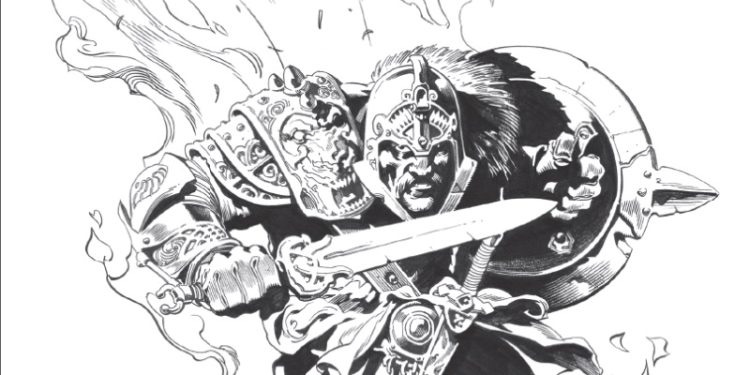A couple weeks ago, I tweeted a response to one of my friends who said “Character creation is not playing the game. In my response, I bemoaned the fact that many modern players view creating characters as the totality of gameplay. There’s an entire cottage industry within RPGs built around character creation. There’s custom miniature creation, character art, dice in every possible color scheme, etc. However, most of these characters are played with for a handful of sessions as then cast aside like Woody in Toy Story 2’s nightmare sequence. At the same time though, players don’t view their characters as disposable. Quite the opposite in fact. After all, when you spend $200+ on all of the trappings of a new character, you might be a little attached to them. This leads to players getting mad when their investment is burned up along side their character due to a failed save to avoid a fireball. As a result, GMs feel pressure to treat squishy level 1 characters with kid gloves. This is the wrong way to do things. Characters are disposable, especially at early levels where players are still learning to play. There’s a simple solution to all of this, one that goes all the way back to the beginning of RPGs. Instead of creating characters, players should be discovering them. What does that mean? Well, let’s dive in.
What do I mean by “discovering” a character? Simply put, it means that players should approach character creation with very few, if any, preconceived notions about the character they will be playing. Does this mean that choice is completely off the table for players? No, but their choices will be influenced by the circumstances they find themselves in namely what they roll for their stats. This is the beautiful simplicity of rolling 3d6 in order for stats. In many ways, your rolls will determine your class. In systems like AD&D where Paladins were required to have a certain score in Strength and Charisma, rolling those exceptional stats meant that you were foolish not to be a Paladin. That being said, you still had the ability to chose your class. If you rolled a 10 Strength and a 16 Intelligence but decided to become a Fighter rather than a Wizard, it changed what kind of Fighter you would be. A high Intelligence but low Strength Fighter would be a lot more like Croaker from The Black Company than say Conan. While choice was still an element of creating this character, the creation process revealed something to you about your character. In this way, you didn’t so much create the character as discover a character through the choices you made. Even when you roll and assign stats rather than just rolling straight, you’re still making discoveries about your character. Say your highest roll was a 16 and you put it in Strength to be a Fighter. However, you also rolled an 8 which you need to place somewhere on your stats. Will you be a fighter who’s physically frail (Constitution), bullheaded (Wisdom), or dull (Intelligence)? Any way you slice it, you have something unique about the character that wouldn’t be there if you did point buy.
This discovery process extends beyond just stats though. I’ve become a convert to the idea of using random tables to establish details about characters. During my most recent character creation session, several players were surprised to find out that they had spent some time in prison. One of them was a lawfully-aligned Cleric. These things give players some vague ideas of who their characters were before they started controlling them without some kind of novel-length lore dump. Again, it's as if the players are learning who their characters are instead of just deciding who they are. Too often, players will treat their characters backstory like a Drizzt Do’urden novel and make their character the coolest, baddest dude in the world all before level 1. I've done it and I know you have too. The temptation to make your character the coolest man who ever lived is gone if you leave it up to the dice though.
This approach of leaving character details to chance creates a kind of borrowed perspective during play. Your character doesn't have your perspective. You are borrowing theirs while you play. It's certainly possible that you'll form an attachment to a character, but the key phrase is “will form.” It's an earned thing. You shouldn't be overly attached to a level one character. You have to survive a few adventures with them before you truly bond with them. In the beginning though, you should embrace the random chance of discovering your character.




